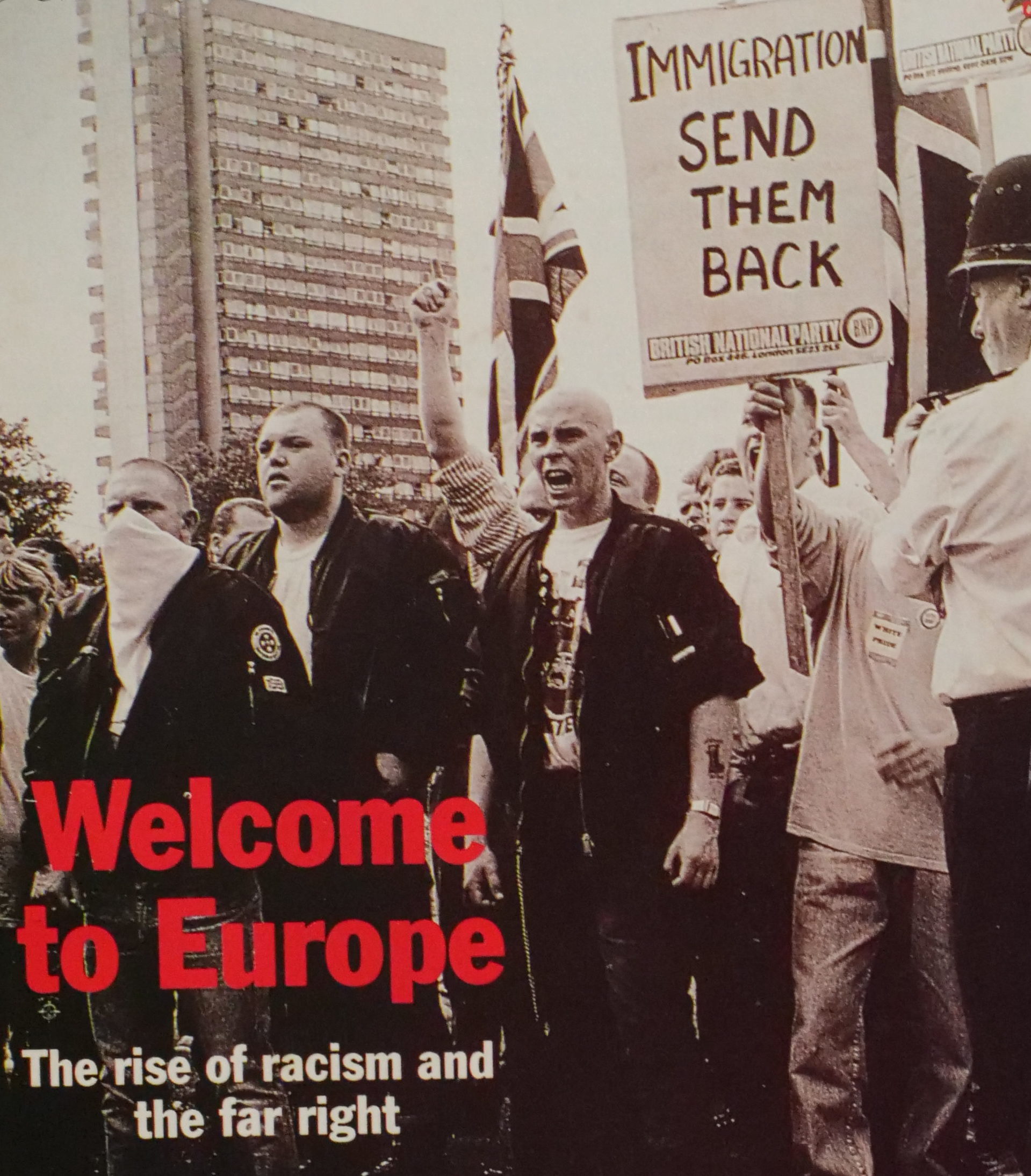Originally published as the Introduction to ‘Europe:the wages of racism’, a special issue of Race & Class edited by Liz Fekete in July 1997.
Racism today is not so much an ideological project as an instrument of policy.
Six years ago, a special issue of this journal, analysing the variants of European racism, argued that the problem for Europe, in its trajectory from an industrial to a post-industrial society, was how to get rid of its migrant workers while still needing migrant work – ad hoc work, flexible and part-time work, temporary and seasonal work. Already, the discussions of Trevi, and at Schengen and Dublin, were setting out a framework of policy which would effect such an outcome. Thus the visa regulations. the lists of ·undesirables’, the fast-track asylum procedures, the common measures on illegal entry, all made sure that the hardship inflicted on migrant workers would be sufficient encouragement for them to return home when the work was done. Since then, however. the Pasqua laws in France, the Koppelingswet law in the Netherlands, the Vande Lanotte Act in Belgium and similar measures in Italy and Germany, have rendered their position even more precarious. And this has been further aided by the massive cuts in public spending — in education, health, housing, etc. – which the drive to convergence has established as the categorical imperative of the Maastricht Treaty.
In the process, the very concept of welfare has shifted, from concern to coercion, from rights to duties, requiring greater and greater government interference into civil society, thereby corrupting government itself.
Liz Fekete charts this progress in ·Blackening the economy: the path to convergence· by laying bare the measures and mechanisms by which migrant workers, who once had de facto (albeit limited) rights, are deprived of their papers and turned into “illegals’, while those seeking refuge and asylum are turned virtually into forced labour. Yet it is they, and the desperate and dispossessed who pass Europe’s borders, who keep viable whole areas of Europe’s economy in agriculture, construction in the domestic and the ‘caring’ services. What that passage means – from the erosion of humanitarian rights and liberties to their gradual eradication, first for one set of people then another is then taken up in Frances Webber”s indictment. “Governing racism: the corruption of the executive”, to show how the legal ground of civil society is itself under threat from governments enjoined to protect it.
More laws against asylum-seekers, against migrants – make for more crime. Traffic in human beings, who will pay with everything they have for escape from the conditions of their existence, has proved lucrative for mafias, large and small, as both Liz Fekete and Frances Webber demonstrate in ‘The human trade’. More crime means more policing – but that policing, as Matthew Carr shows in “Policing the frontier: Ceuta and Melilla’, is directed against the ‘victims of the world economic system’, not against those who exploit it. The virulent racist belief that underscores Spanish practice here is also reflected in the Commentary section, in CARF’s analysis of deaths in Europe, in Geoffrey Bindman’s account of the Lubeck trial. and in the sample accounts of Roma persecution in eastern Europe. But softer versions are being peddled, too. In Sweden, with its history of liberalism, of aid to the Third World, and (historical) openness to those fleeing persecution, a new cultural racism is in the making, as Mats Deland shows in ‘The cultural racism of Sweden’. But its practical aim is the same – to keep migrants and refugees out.
For the women who get past Europe’s borders, basically two choices are available, writes Bridget Anderson in ‘Servants and slaves: Europe’s domestic workers’: prostitution or domestic service, and goes on to uncover the abuse of human beings in the very heart of the nuclear family. From a different direction, but to the same end, Jeremy Seabrook in ‘Convergence, welfare and development’ makes an impassioned argument to show that the welfare of the North and the development of the South are indissolubly linked.
